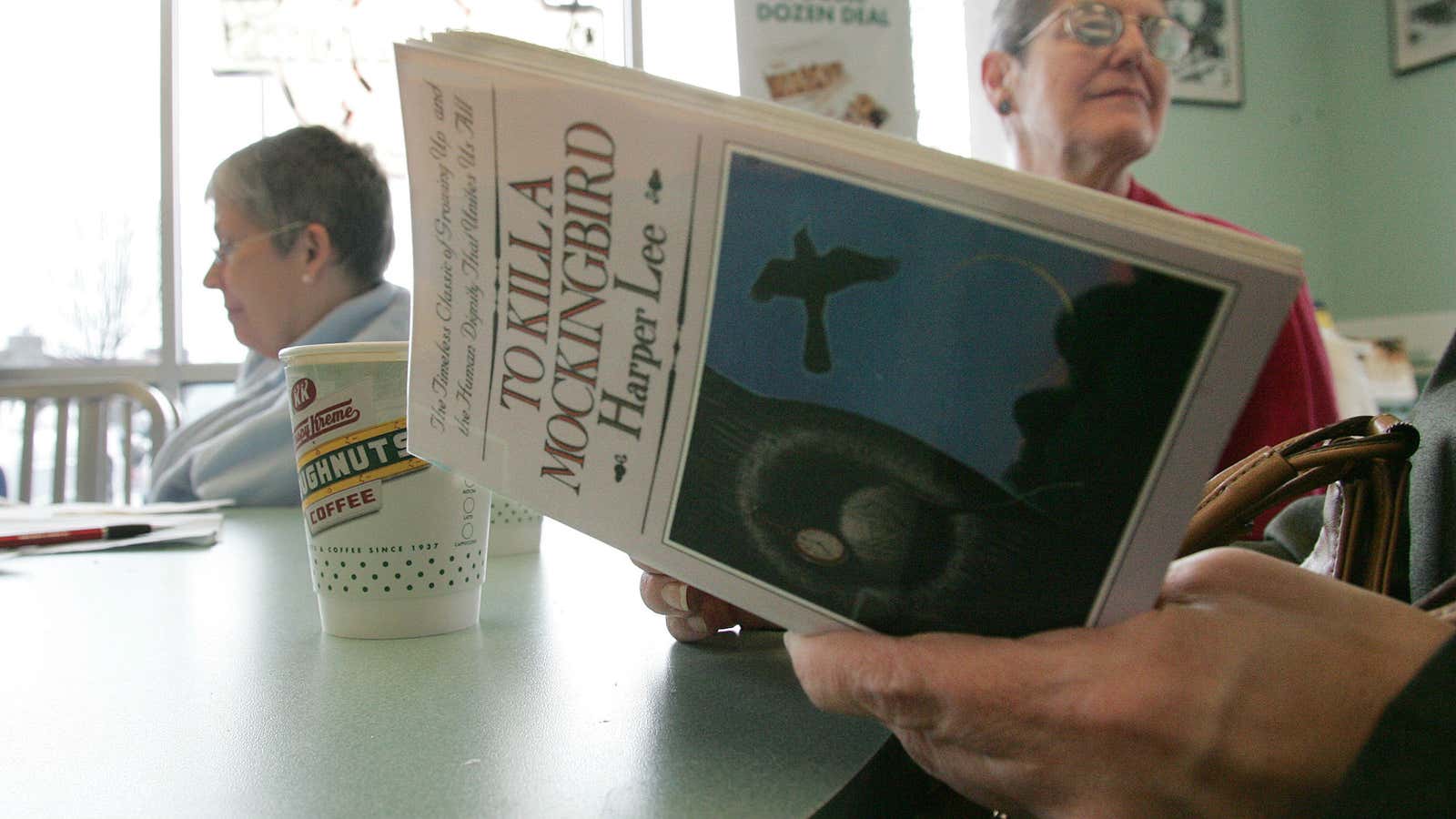Denizens of the internet collectively gasped in elation today as it was revealed that 88-year-old author Harper Lee will publish a sequel to everyone’s favorite seventh grade reading experience, the beloved To Kill a Mockingbird. HarperCollins will print 2 million copies of the novel, titled “Go Set a Watchman,” after Lee’s lawyer discovered a copy of the manuscript, which was written by Lee in the 1950s and thought to have been lost.
The news created a frenzy online. Many who took to Twitter offered alternative titles to the sequel.
If you suggested To Kill a Mockingjay or 2 Kill 2 Mockingbird, know that your thought was not original. Ditto for anyone who took inspiration from the new Terminator movie coming out this year. (I was the first person on Twitter to come up with this one—I checked.)
Once the jokes subsided, the mood shifted to overwhelming glee.
After all, To Kill a Mockingbird is one of the best-selling novels ever, has been called the greatest novel of all time, and is a staple in school curriculums in the US and elsewhere. A 2006 poll revealed that 83% of American book readers own a copy of the novel, and 31% have read it five times or more.
But Twitter being Twitter, there were some who did not seem as enthusiastic.
Aldridge, an NBA reporter, may have a point. If so many view To Kill a Mockingbird as “the perfect novel,” why does it need a sequel?
The truth is, it isn’t exactly a sequel. Lee wrote the forthcoming book, about an adult Scout, before To Kill a Mockingbird. Her editor at the time loved Scout’s childhood flashbacks and persuaded her to write an entire novel set in that time—which ultimately became the phenomenon that is To Kill a Mockingbird. Lee then lost track of the “sequel” and assumed it had been lost or destroyed. To Kill a Mockingbird was the only novel she ever published.
Some are suspicious of the circumstances surrounding the new novel’s publication. Lee’s sister and lawyer, Alice Lee, who famously protected Harper’s estate over many years, died only a few months ago. Her death could have left an opening for publishers to swoop in an exploit the elderly Lee, who is believed to be in bad health. Lee herself said in a statement that she was “humbled and amazed” by the decision to publish her long-lost novel, but who knows whether or not that statement was coached.

For those worried that the book is merely a ploy to cash in on people’s nostalgia, well, it is no doubt partly that, but it also could be really good. It’s not some uninspired Hollywood sequel—it’s the original author, writing at her prime, and at the height of civil rights tensions in the 1950s south.
The book (adapted in an excellent movie starring the unmatchable Gregory Peck as Scout’s father, the lawyer Atticus Finch) has been referenced in countless other movies, TV shows, and songs. It’s one of Oprah’s favorite books. President Barack Obama says it’s also one of his family’s favorites:
Do we “need” a sequel? Of course not. To Kill a Mockingbird stands on its own, and always will. But this is no ordinary sequel and Harper Lee is no ordinary writer. What’s perhaps most extraordinary is that the sequel was never published in the first place, after the tremendous success of the first novel.
Lee had said, in response to her never publishing another novel, “When you’re at the top there’s only one way to go.” To the delight of millions, her second book, published when she’ll be a year shy of 90, will put that theory to the test.
